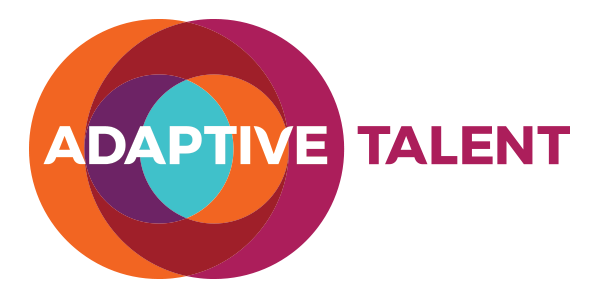Dave Ulrich is a University of Michigan Ross School of Business Professor and a recognised expert in Human Resources and Organizational Development. I’ve followed Dave for literally decades at this point and he’s always got great advice about how to up skill the Human Resources function in organisations. Today, however, I’m going share one of his LinkedIn Posts in its entirety because it’s a concise and pragmatic set of recommendations on how to help individuals feel more hope and agency in their life, which is another way of saying being in a creative stance with life.
I don’t know about you, but I’m overwhelmed with the sheer volume of choices, news / information to consume, and simply trying to interpret all of that into a coherent plan that I am energised to act upon. I’m also noticing that my clients are “full” in terms of the demands of their various life roles and so it’s crucial to recognise that we need to be super aware and attentive to our physical and mental well being in order to help create the results that matter most to us, and those who depend upon us. You are not an ATM; you can’t just give endlessly but instead need to consciously manage your energy and inner clarity and motivation so that you can be your best self and deal with today’s demands.
By creative stance I’m referring to one’s mindset / way of experiencing life that says “life happens through me” rather than life is happening to me. The former honours our leadership and inherent agency and creativity while the later (reactive) does its best to keep us stuck, “protected” from our anxieties. Both mindsets can achieve results, but a reactive way of being cancels out our gifts because there are so many downsides from overuse.
For example, the gift / skill of achieving key goals and tasks becomes a liability when we overdo it and drop into over-control. When we over control it’s inversely related to developing quality relationships, and the most important deliverables always require quality relationships, the insights from come from trust and candour, and the support needed to bring complicated endeavours alive. The Leadership Circle and the two books written about the Universal Model of Leadership are my most recommended tools and sources of insight about leadership, the differences between creative and reactive mindsets (and impact on you and others), and I highly recommend them.
In an era of “do more with less”, retirements, and labour scarcity now it becomes even more important to help your entire team understand mindsets, leadership, self care, and the power of agency and conscious leadership. If for no other reason, helping others step into their power and leadership capacity will lighten the burdens you may feel currently fall on you, and that’s essential if your team is going to achieve big goals.
With that in mind, I present Dave’s writing and encourage you to answer these questions for yourself first, and more broadly to reflect on the creative versus reactive mindsets in different aspects of your life/roles, and those of your colleagues, friends, and family members. His tips are helpful methods to increase the probability that you’ll more often be “above the line” and/or can recover more quickly when you inevitably fall below (we’re human and emotions come and go, so even with effort we can move above and below the line like a yo-yo).
——
How many people in your friendship circle are in some degree of an emotional funk? Emotional funk is more than the day-to-day ups and downs of everyday living but less than the deep anguish of despair. Some may feel depression about their ability to recover from past trauma. Others may feel anxious about their uncertain future. Or still others may feel lonely from the isolation of the pandemic years.
Depression from the past, anxiety about the future, and loneliness in the present may lead to a vicious cycle of helplessness where the emotional malaise stifles actions and leads to greater emotional malaise.
In personal lives, this emotional funk may show up or lead to physical health problems (insomnia, addictions, weight gain/loss), relationship challenges (divorce, anger, loneliness), and self-doubt (inability to take risks, plan, be motivated). In a professional work setting, this emotional funk may lead to job hopping, quiet quitting, and overall lower engagement.
Business and HR leaders who help others replace emotional funk with spunk (or vigor), self-doubt with self-confidence, apathy with agency, pessimism with optimism, and helplessness with hopefulness will enable people to discover a virtuous cycle of well-being in their personal and professional lives.
If your friends or colleagues (ahem, or even you) are tending into an emotional funk, what can you offer them or yourself? Let me suggest five principles, personal actions, and reflection questions based on thoughtful insights by Martin Seligman and others. These ideas offer a blueprint for replacing helplessness with hopefulness at work and at home.
1. Recognize types of well-being: I seek meaning in my life.
In general, well-being or happiness can be categorized into three areas:
- Level 1: Find pleasure and have fun by doing things that you enjoy (food, entertainment, exercise).
- Level 2: Create positive processes by having good habits and patterns.
- Level 3: Discover meaning by identifying and living values.
Be careful to not be distracted by constant pleasure hunting, but seek more fundamental meaning that comes from clarifying and acting on values, expressing gratitude, and serving others. Ponder on questions like:
- How do I define success?
- What am I grateful for today?
- Whom can I serve?
These questions help you explore a higher level of well-being that is focused on meaning.
2. Exercise agency and take responsibility: I am responsible for my choices.
Focus less on circumstances and more on choices. Research shows that when animals or people face events they can’t do anything about, they can experience learned helplessness and emotional funk. In contrast, when people recognize what actions they can control and make choices, they have learned hopefulness.
Choices come from recognizing and acting on the principle of agency. Agency is the ability to make choices, and an agent is someone who acts and accepts responsibility for those actions. Agency also means clarifying what we want and accepting the price we must pay to realize our desired outcomes. Human progress comes from using agency and making choices.
In employee surveys, agency shows up when we add “Did I do my best . . .” to traditional engagement questions. For example:
- Did I do my best to build relationships with others?
- Did I do my best to improve my skills?
- Did I do my best to earn my pay?
These questions focus on your agency and taking responsibility for your choices.
3. Believe in efficacy: I can achieve my goals.
One of the foundational theories of motivation is called expectancy theory, which simply states that efforts will lead to desired outcomes. Without a high probability that actions will lead to outcomes, emotional funk continues. Efficacy means that you believe you can achieve your goals. Set stretching but achievable goals within your zone of influence. And match appropriate actions to outcomes (e.g., we won’t be able to run a marathon if we only ever walk). Take small actions to make short-term progress to attain longer-term goals.
Ask yourself:
- What are my goals that I can realistically accomplish?
- What are first steps in making progress to reach my goals?
- How can I maintain confidence that I can reach my goals?
These questions help you claim ownership of your goals and actions.
4. Learn and practice optimism: I can achieve my goals in the future.
Controlling our circumstances is often impossible, but controlling our response to our circumstances is possible. Turning pessimism into optimism comes by tuning into the pessimistic thoughts you might have (“I can’t do this.”) and arguing against these negative attitudes (“I can make progress on what I need to do.”) By facing and overcoming self-defeating ideas and behaviors, you can gain confidence in your future opportunities. By looking for the positive in any situation, you can begin to learn optimism about what can happen.
Ask yourself the questions:
- What often gets in my way of reaching my goals?
- What are the cognitive distortions of any self-defeating thoughts and actions?
- What can I learn from what I have done?
These questions help you be honest and transparent with yourself to learn from your past and to look forward with optimism.
5. Imagine a better future: I can achieve many different goals.
Looking back at what has gone wrong to learn from it can be interesting; but looking forward to create what can be can also be inspirational . When you imagine a host of possible goals for your future, your horizon is brighter than your past. Imagining new options comes from observing what others have done that you might do, envisioning yourself in new settings, and conceiving new options that you may not have considered.
Ask yourself the questions:
- If I could do or accomplish anything I aspire to in the future, what would it be?
- What are the options for my future I may not have considered before?
- What successful things do I observe others doing that I can apply to myself to create my next practices?
These questions help you imagine and envision what can be. Your unlimited imagination poses possibilities and offers hope.
Summary
Emotional funks exist in our friends, our colleagues, and ourselves. They often foster an attitude of helplessness that discourages us because of pessimism. With intentional actions, we replace helpless and pessimistic attitudes with hopefulness that encourages optimism.
When business and HR leaders help employees become hopeful, not only do individuals prosper but so do organizations and communities. Providing hope is an emerging opportunity for an emotionally vulnerable world.
..………
Photo credit: Catalin Pop!
---
Adaptive Talent is a talent consultancy designed to help organizations achieve amazing results and ongoing adaptability. Founded in 2008 and based in Vancouver, Canada we offer retained and contingent search, assessments, training, leadership coaching (1:1 and group), leadership development programs, and culture & organizational development consulting.

